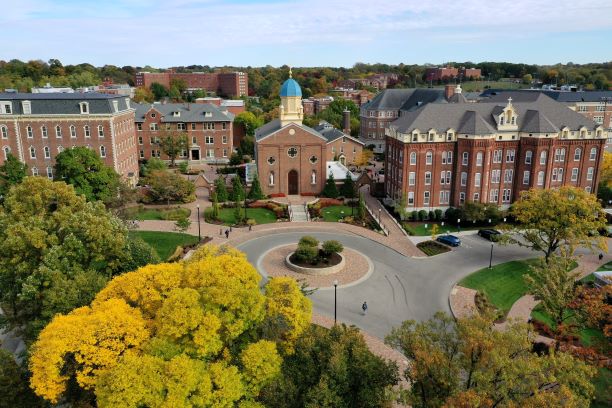Blogs

Pandemic from a Disability Studies Perspective
By Meghan Henning
In 2020 as the world faces a global pandemic the disabled body has once again taken center stage as the self-affirming image of the normative body. As U.S. leaders try to reassure citizens of their safety they bandy about ableist language, claiming that the virus will only be deadly for the elderly and those with pre-existing conditions, or suggest that the deaths of persons with disabilities is preferable to economic collapse. Such statements attempt to “hide disability in plain sight,” ignoring that the elderly and those with pre-existing conditions make up nearly half of the population (see Jana Bennett). This strategy of containment, however, is much more insidious than simply ignoring disability, it externalizes fears of sickness and death onto the disabled body, and then lifts up the disabled body as an acceptable sacrifice, sentenced to death so that others might shop with impunity.
This strategy is an old one. In the ancient Christian apocalypses that describe hell, the disabled body became the emblem of sin, a way of exorcising fears about hidden sins. In the modern era the freak show functioned to contain fears about bodily and economic vulnerability by placing them on bodies that were marked as deviant and further stigmatizing them as “freaks.” These spectacles also worked to “contain” difference, as Rosemarie Garland Thomson argues: “The freak’s body mocked the boundaries and similarities that a well-ordered democratic society required to avoid anarchy and create national unity. By exoticizing and trivializing bodies that were physically nonconformist, the freak show symbolically contained the potential threat that difference among the polity might erupt as anarchy.” (Extraordinary Bodies, 66)
Just as ancient hells and modern freak shows externalized fears about hidden sins and anarchy onto the deviant body, today we attempt to contain fears of the sick body by projecting them onto disabled bodies, and marking others as “safe.”
But this time those who are attentive can see the narrative of bodily imperviousness laid bare as a myth. In order to flatten the curve, and slow the spread of Covid 19, many states have imposed social distancing measures that place limits on the body, even for those who consider themselves to be “able bodied.” Persons with all manner of bodies find themselves to be vulnerable to something that they can’t see, and public health measures heighten our collective sense of bodily vulnerability-something that persons with disabilities have always known. In some communities that reject social distancing and cling to the idea of bodily invulnerability, the ideals of masculinity and ableism are revealed not just to be “toxic,” but deadly. In a global pandemic, the myth of bodily normativity not only imperils those who were already marginalized, it endangers us all.
As Dr. Burnley noted in last month’s blog, the pandemic has amplified our inequalities. Even prior to the pandemic, a disproportionate number of persons with disabilities are black and Latinx, due to inequitable access to healthcare. During the pandemic, social and economic inequalities mean that many persons with disabilities are not able to work from home. As a temporarily able bodied white woman of relative affluence, I am aware that my own risks are mitigated because others go to work in grocery stores and pharmacies, serving all of us. The pandemic is not creating new inequalities, it is compounding our old ones with interest. We have allowed our cultural determinations about which bodies “matter most” lead the way in our decision making and now we see the accelerated impact of those decisions on the lives of those whose bodies we have minoritized.
In recent weeks the impact of our cultural commitments to ableism have struck me several times. Powerful politicians choose to attend super spreader events and then express their gratitude for the medical care that they receive due to a state funded medical plan and top of the line healthcare. The very plans that these politicians oppose in policy have saved their lives, while millions of Americans know that if they contract the virus they may meet a very different end. We see attempts to disparage absentee ballots and prevent absentee ballots from being counted, acts which, in a deadly pandemic would effectively take away the voting rights of many persons with disabilities. Disability rights activists have responded with demands that we #CountDisabledPeoplesVotes, urging Americans to avoid further silencing and “containing” persons with disabilities.
The pandemic is difficult for everyone because we are being told, some of us for the first time, that certain things are not possible, that our bodies have limits. For temporarily able bodied folks, myself included, this is a shock. For folks with disabilities it is frustrating to watch temporarily able bodied people express frustration over things like wearing a mask that may save another person’s life. Amidst this shock and all of the frustrations that come with it, the pandemic also unveils for us other kinds of possibility. The opportunity that we have with our inequalities under the microscope is a moment of prophetic possibility, an opportunity for us to join together in the “uncommon good.” Like the Biblical prophets, we stand at a poignant moment, able to see the world more clearly than ever. The prophetic possibilities of this moment offer an opportunity to critique these inequalities, to join God’s work in the world for justice, and to cast a vision for the future in which every body is able to flourish. Make no mistake, prophetic hope is not positive thinking that treats privilege as God’s blessing, nor is it toxic positivity that allows us to escape the painful clarity that this moment affords us. Prophetic hope looks unflinchingly at systemic evil and says “let’s get to work.”
